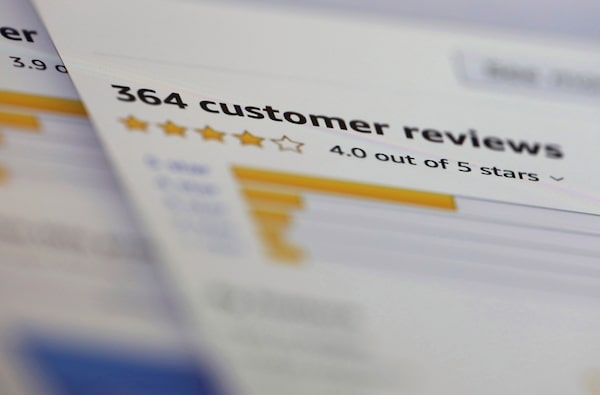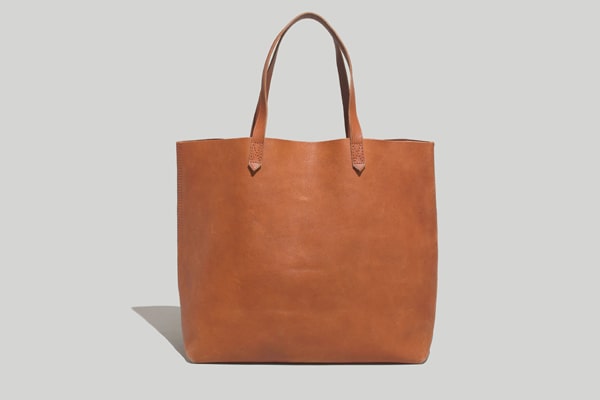Hi, I’m Samantha Edwards, an editor at The Globe and Mail. Welcome to Lately, The Globe’s new tech newsletter. Every Friday morning, I’ll be breaking down the week’s biggest tech stories and how they intersect with - and even change - our world. So let’s go!
In this issue
🤑 Ottawa announced $2.4-billion in new AI spending. It might not be enough
🌑 The eclipse held our attention long enough that internet usage dropped
🙅🏻♀️ How fake online reviews took over the internet
🙈 Is age verification coming to porn sites?
Ottawa announces $2.4-billion in new AI spending

A data centre filled with supercomputers at Calcul Québec.Stéphane Brügger/Supplied
This week Prime Minister Justin Trudeau announced the government plans to invest $2.4-billion in Canada’s AI infrastructure, with most of the money going toward building Canadian-owned computing capacity and making existing infrastructure more accessible. Since 2017, Canada has attracted some of the best AI researchers in the world with millions in funding for AI research hubs. But it hasn’t invested in the actual infrastructure needed to allow these workers to push the limits of AI. We often think of AI as a technology that only exists in the cloud, but it’s powered by sprawling data centres stuffed with very expensive GPUs, or graphics processing units, which are a type of computer chips commonly used in AI.
The announcement was welcomed by Yoshua Bengio (widely considered a “godfather of AI” and the founder of Quebec-based AI institute Mila), but some experts said they aren’t quite convinced the new initiatives will amount to much. “Call me when there are results and globally competitive Canadian AI companies at scale, or more likely, call me when the program is wildly unsuccessful,” said intellectual property lawyer Jim Hinton. The government’s budget will be released next Tuesday.
Are you reading this newsletter on the web? If so, you can sign up for the Lately newsletter.
All it took was an eclipse to get us off our phones
A crowd watches the eclipse in Niagara Falls, Ont.Melissa Tait/The Globe and Mail
Scientists say a solar eclipse makes animals do odd things: chirp, scream, run, get frisky. And this week’s solar eclipse also made humans do something unusual: put down our phones. According to Cloudflare, the cloud-computing service that has almost certainly asked you to “Verify You Are Human” today, internet traffic dropped in provinces inside the path of totality. Prince Edward Island experienced the biggest dip in traffic, with a 48-per-cent drop, followed by New Brunswick (40 per cent), Newfoundland and Labrador (32 per cent), Nova Scotia (27 per cent), Quebec (27 per cent) and Ontario (21 per cent).
The economy of fake online reviews

Every 5-star review is not what it seemsJenny Kane/The Associated Press
In the endless scroll of online shopping, we tend to turn to reviews to help us decide what to buy. But can they be trusted? Last year Amazon blocked more than 200 million suspected fake reviews, while a 2021 World Economic Forum report found fake reviews influenced $152-billion in online spending.
The first episode of the Lately podcast explores the wild world of fake reviews and how Canada’s Competition Bureau is trying to crack down on them. As host Vass Bednar explains, it’s no easy task. The fake review problem poses an existential question. When it comes to fake product reviews on the internet, who is liable: the online spaces hosting false reviews or the individuals who are posting them? And if you need help spotting fraudulent reviews, my editor Rebecca Zamon swears by this Chrome extension.
Want to watch porn online? Let’s see your ID
About four-fifths of Canadians think the government should make porn sites verify their users are 18 or older, according to a new survey conducted by Nanos Research for The Globe. The measure isn’t included in the government’s online harms bill - the one that puts the onus on websites to remove harmful content such as cyberbullying or child pornography - but age verification is supported by all the opposition parties. The big question is how exactly they would create an age verification system that also protects privacy - which tends to be top of mind for people visiting these kinds of sites. The government admits this “presents significant challenges in light of current technology available,” according to David Taylor, the communications director for Justice Minister Arif Virani.
What else we’re reading this week
- Is Ontario backing the Betamax of EV batteries? (The Logic)
- The Internet Archive Just Backed Up an Entire Caribbean Island (Wired)
- Marissa Mayer’s eternal Sunshine (Platformer)
- Saudis Scale Back Ambition for $1.5-trillion Desert Project Neom (Bloomberg)
- WordPress owner Automattic acquires multiservice messaging app Beeper for $125-million (TechCrunch)
Soundbite
“In some ways, I enjoy reading the comments and looking at the ratings and reviews and creating spreadsheets and trying to optimize the best thing. In other ways, I realize it’s kind of an illness and it drives me a little bit nuts.” - Joseph Reagle, author of Reading the Comments: Likers, Haters, and Manipulators, heard on Lately, episode 1.
Adult Money

Am I ready to graduate from backpack to sleek tote bag?Supplied
The other week during my commute to the office, with a Patagonia backpack stuffed on my lap, an older woman mistook me for an undergrad student. She seemed shocked when I told her I was actually an adult on the way to my adult job. I’m blaming the backpack for my adolescent aesthetic. So, now I’m on the hunt for a more mature bag that can hold a 15-inch laptop. I’m eyeing this Madewell tote. I think it looks like what a chic business woman would use en route to her corner office. (Do those still exist? Or has every worker also been relegated to open-concept hot desks?) The reviews look great – but as today’s podcast episode exposed, can I even trust them?
What purchases are you contemplating spending your Adult Money on? Did you just buy something that feels totally worth the hype? Even better - do you have an adult-looking bag you love? Tell me about it sedwards@globeandmail.com
Culture radar

Timothee Chalamet in Dune: Part TwoCourtesy of Warner Bros. Pictures/The Associated Press
“Make me a playlist that Timothée Chalamet’s character in Dune: Part 2 would like.”
If you thought Spotify was already eerily good at picking songs for your Discover Weekly playlists, buckle up. The company rolled out AI Playlist earlier this week, a feature that allows Spotify Premium users to create specialized playlists based on text prompts, à la ChatGPT. In a trailer for the feature, the prompt “Make me an indie folk playlist to give my brain a big warm hug” spits out a playlist called “Cosy Cuddles” with Arlo Parks, Suki Waterhouse and Noah Cyrus. The feature is currently only available for Android and iOS devices in Britain and Australia, so us Canadians will need to wait a bit longer. (And to answer my own prompt, obviously Paul Atreides would be listening to Sandstorm.)